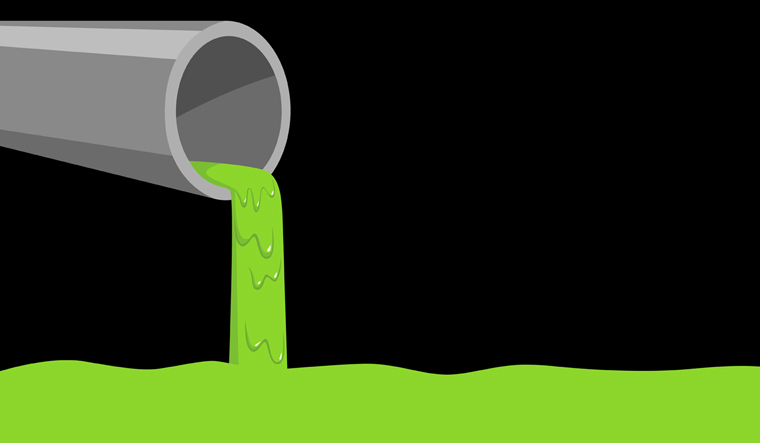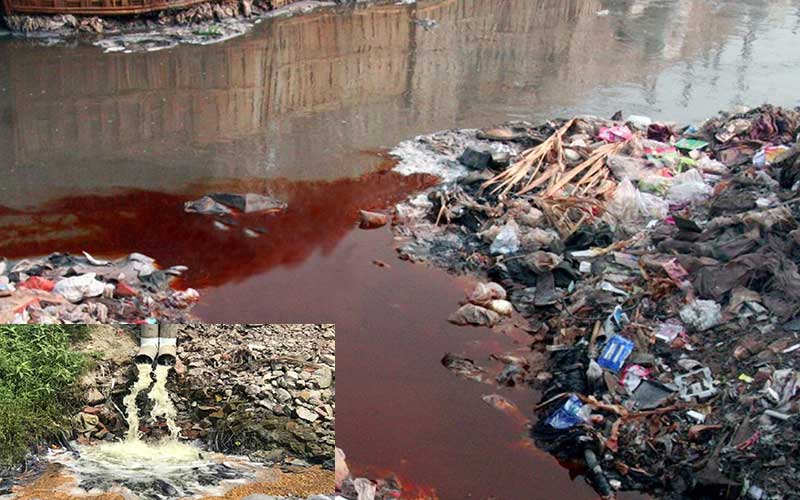Safe and Lasting Liquid Waste Disposal: Your Go-To Company
Safe and Lasting Liquid Waste Disposal: Your Go-To Company
Blog Article
Understanding the Comprehensive Process of Fluid Garbage Disposal: Ideal Practices and Environmental Influence Factors To Consider
The administration of fluid waste disposal is a diverse issue that needs a comprehensive understanding of numerous finest practices and their connected environmental effects. From the types of fluid waste generated to the techniques employed for collection, therapy, and final disposal, each action plays a crucial duty in protecting ecosystems and public wellness.
Sorts Of Fluid Waste
Comprehending the numerous kinds of fluid waste is necessary for effective monitoring and disposal methods. Fluid waste can be extensively classified into a number of types, each needing one-of-a-kind handling and treatment techniques.
Industrial fluid waste frequently has dangerous materials, including heavy steels, solvents, and chemicals, generated throughout producing procedures. These wastes necessitate strict regulative conformity to shield human health and the atmosphere. Domestic fluid waste largely describes wastewater generated from households, including sewage and greywater, which, although less hazardous, can still posture substantial risks if improperly managed.
Agricultural liquid waste, including runoff from farms, typically has fertilizers and chemicals that can bring about ecological destruction otherwise dealt with adequately. Medical liquid waste, created from medical care centers, consists of polluted fluids such as bodily fluids and chemicals, requiring specialized disposal approaches to prevent infection and environmental contamination.
Lastly, oil and oil waste, typically produced by dining establishments and auto sectors, can create serious obstructions in drain systems if not handled properly. Understanding these groups promotes targeted methods for therapy, compliance with guidelines, and effective disposal approaches, ultimately promoting environmental sustainability and public health safety and security.

Collection Techniques
Effective collection approaches are vital for the appropriate management of fluid waste, guaranteeing that it is collected safely and efficiently prior to treatment or disposal. Numerous techniques are used depending upon the kind of liquid waste created, the volume, and the specific attributes of the waste.
One typical approach is using committed collection storage tanks or sumps, which are designed to catch fluid waste at the source. These systems usually integrate pumps that facilitate the transfer of waste to larger storage space containers or treatment centers. Additionally, mobile collection devices furnished with vacuum modern technology are utilized in scenarios where waste is produced periodically or in hard-to-reach places.
For industrial setups, closed-loop systems can successfully reduce spills and leakages, permitting the healing and reuse of liquid waste. It is additionally vital to train workers on correct collection protocols to alleviate threats related to harmful substances.
Additionally, applying regular maintenance routines for collection devices makes certain optimal performance and safety. The combination of sophisticated surveillance systems can enhance collection efficiency by offering real-time data on waste levels and prospective dangers. On the whole, reliable collection approaches are fundamental to lasting fluid waste monitoring practices.
Therapy Procedures
Therapy procedures play a crucial duty in the monitoring of fluid waste, transforming possibly unsafe products right into risk-free effluents or recyclable resources - liquid waste disposal. These procedures can be generally classified right into physical, chemical, and biological methods, each tailored to address details impurities existing in the waste stream
Physical therapy techniques, such as sedimentation and filtration, work by getting rid of put on hold solids and particle matter. These techniques are frequently the very first step in the treatment chain, properly lowering the tons on subsequent procedures. Chemical therapies involve the usage of reagents to reduce the effects of damaging substances, precipitate heavy steels, or oxidize natural pollutants, therefore improving the safety of the effluent.
Biological treatment processes, consisting of turned on sludge systems and anaerobic digestion, maximize the all-natural capabilities of bacteria to degrade natural issue. These methods are specifically effective for wastewater consisting of biodegradable contaminants. Advanced therapy technologies, such as use this link membrane filtering and progressed oxidation processes, are progressively employed to achieve greater degrees of purification.
Integrating a mix of these Web Site treatment techniques not just makes certain compliance with regulative requirements yet also promotes environmental sustainability by recouping valuable resources from liquid waste.
Disposal Options
Exactly how can organizations make certain the accountable and risk-free disposal of fluid waste? Reliable disposal options are important for securing public wellness and the setting. The key methods include land disposal, incineration, and treatment followed by discharge into municipal wastewater systems.
Land disposal involves the careful containment of liquid waste in assigned landfills, making certain that it does not leach right into bordering dirt or water. Incineration, on the various other hand, topics fluid waste to heats, transforming it right into ash and gases, which need appropriate filtering to lessen discharges. This technique appropriates for harmful wastes that can not be treated with conventional ways.
In situations where fluid waste can be dealt with, companies may go with biological or chemical therapy processes to neutralize hazardous components prior to releasing the treated effluent into municipal systems. This course normally aligns with regulative requirements, ensuring that the effluent fulfills security standards.
Inevitably, companies need to conduct comprehensive assessments of each disposal alternative to identify its viability, taking into consideration aspects such as waste composition, governing compliance, and potential threats to health and wellness and the environment. By picking suitable disposal approaches, services can contribute to a liable waste administration approach.
Environmental Influence
The environmental influence of liquid garbage disposal is an essential consideration for companies looking for to decrease their eco-friendly impact. Improper disposal methods can cause significant contamination of water resources, dirt degradation, and damaging effects on regional communities. As an example, hazardous liquids can seep right into groundwater, posing dangers to alcohol consumption water supplies and water life. In addition, the discharge of neglected or improperly dealt with waste right into surface waters can lead to eutrophication, bring about oxygen depletion and the subsequent fatality of fish and various other microorganisms.

To alleviate these effects, companies have to take on ideal techniques such as applying strenuous waste therapy processes, promoting recycling and reuse, and adhering to regulatory criteria. By taking an aggressive strategy to fluid waste administration, entities can substantially lower their ecological impact while supporting sustainable growth objectives. Inevitably, a thorough understanding of the ecological effects connected with liquid garbage disposal is important for notified decision-making and accountable stewardship of natural resources.
Conclusion
Effective monitoring of liquid waste is essential for safeguarding environmental integrity and public wellness. Eventually, a comprehensive understanding of liquid waste disposal not only alleviates ecological impacts however additionally fosters a commitment to accountable source monitoring and environmental stewardship.
The administration of fluid waste disposal is a complex issue that needs a thorough understanding of various finest methods and their linked ecological influences. From the kinds of fluid read what he said waste created to the methods employed for collection, treatment, and final disposal, each step plays an essential role in safeguarding communities and public health and wellness.The environmental effect of liquid waste disposal is an important factor to consider for companies looking for to lessen their eco-friendly impact. Eventually, a detailed understanding of the ecological influences connected with fluid waste disposal is necessary for educated decision-making and accountable stewardship of natural resources.
Ultimately, a comprehensive understanding of liquid waste disposal not just minimizes ecological effects but also cultivates a dedication to liable source administration and environmental stewardship.
Report this page